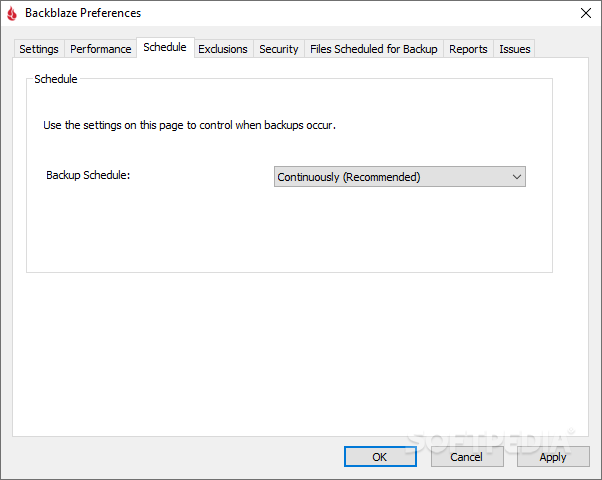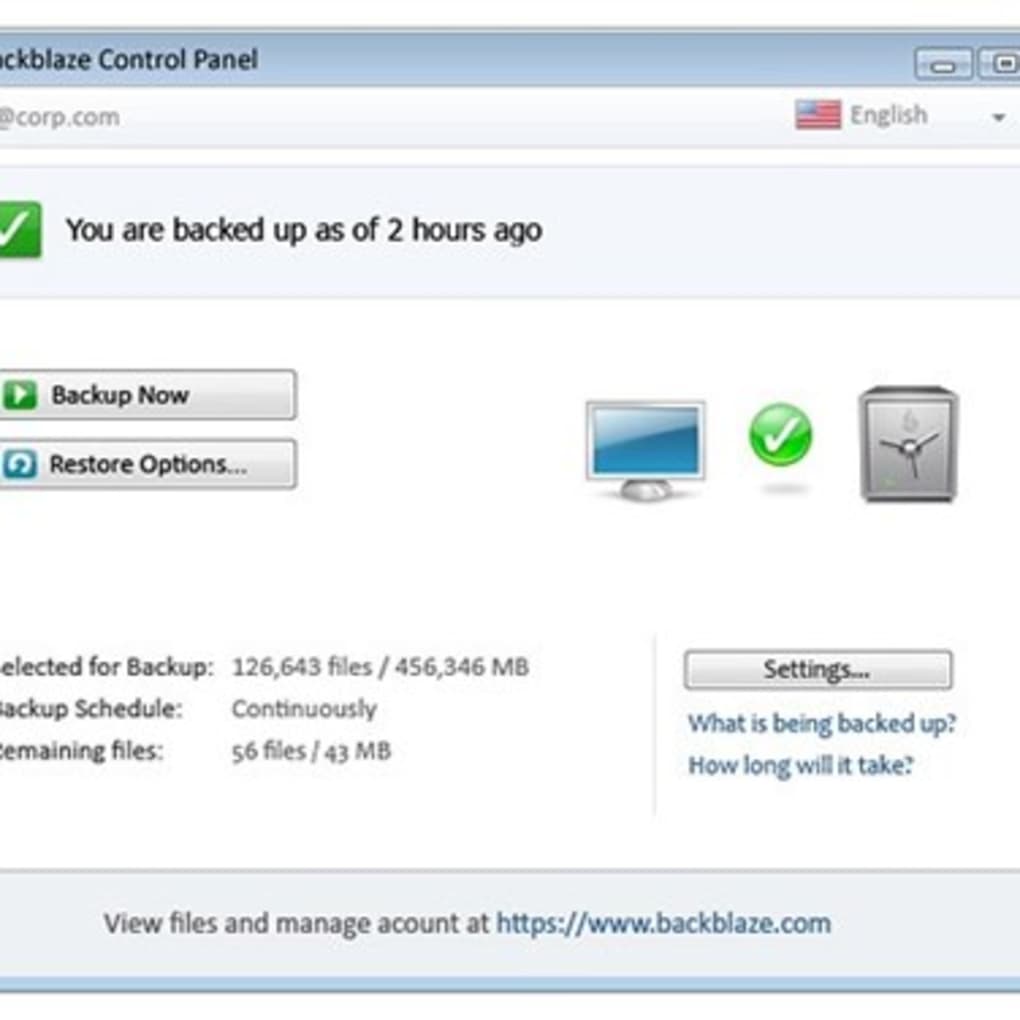
And if they actually made their client open-source to make independent security audits possible, that would pretty much enable them to beat all of their competitors. If CrashPlan at some point does the switch to a native client, which they've promised for many years now, Backblaze will have a very tough stand. The custom key is flushed from memory once files are restored."Īll of these promises are fundamental for encryption to make any sense at all. The custom key is held in memory for the purpose of restoring files it is never written to disk. Your custom key is never cached at any remote location. For reference and comparison, here are CrashPlan's promises on private key encryption: "Encryption key exists only on source computer. But their solution seems much clearer and thought-through. Technically, you still need to trust a closed-source client, so for the really security-aware it's still not an option. Their servers may be slower, their client harder to use, and generally less stable and performant (Java! Ugh! Who still uses Java for productive software?) but they seem more concerned about letting actions and processes follow their promises. If you care about encryption, CrashPlan is probably the better choice for now. I believed in the lie for more than two years, because only when you get to the point of needing to restore files, you realise that none of it was true. Looking at their marketing talk on the website now, it all seems like one big lie. But I really hope they'll step up their game and actually follow through on their promises of security and encryption. This may sound harsh, and since I don't store any really sensitive data with them I'm kind of fine with still using their service – the price is good, the servers fast, the client nice. And why would you set up a backup solution if you never intended to retrieve any files from it? Because you'll have to undo the entire security effort the moment you want to get back any of your files. Hence, Backblaze still handles your data on their servers in unencryped form.Īll of this turns the entire concept of end-to-end encryption into a fake, a completely pointless exercise. They will decrypt your data, and actually re-encrypt it on the USB drive for some semblance of security in transit of the drive to you, but it will be with a separate encryption key that is displayed to you in your account.

If you choose the USB method, you still have to supply your private key.

Download backblaze archive#
You supply your private key, select what to restore, then wait for Backblaze to prepare an unencryped, not even password-protected, ZIP archive of your files on their servers for you to download. In the ZIP method, you request your backup through the web interface. You have the option of either downloading a backup as a ZIP file, or having it delievered to you on a USB drive or hard disk. But this is exactly what Backblaze requires you to do if you want to retrieve your backed up files.

And then they do that! Sharing your private key with anyone is the absolute biggest "no-no" in information security. Backblaze claim to have years of experience in implementing security. In short: there doesn't seem to be a way to restore your files without first sending your private encryption key to Backblaze, letting them decrypt your data on their servers, and send the restore to you. I have been happy with this – until I actually needed to restore files from a hard drive that died. That is, as long as you trust that that's really what their closed-source client is doing behind the scenes. You enter your private key in the client, your data is encrypted locally before transmission. Never sharing your private encryption key with anyone is the whole point of end-to-end encryption.īackblaze pretends to uphold this while backing up your data. If you request back your files, you get the encrypted version, that only you can decrypt again with your private key, which is supposed to never leave your computer and control. They only ever store the encrypted data, and, since they don't know your private key, have no reasonable way to decrypt it – neither would any malicious attacker that in some way or another gains access to your backups. The idea behind end-to-end encryption is this: you use a private key to encrypt your files locally, before sending them to Backblaze servers. Long story short: for all of Backblaze's marketing talk about security and end-to-end encryption, that is only the case if you never need to restore anything from your backup! Which is, of course, not the point of doing backups.


 0 kommentar(er)
0 kommentar(er)
